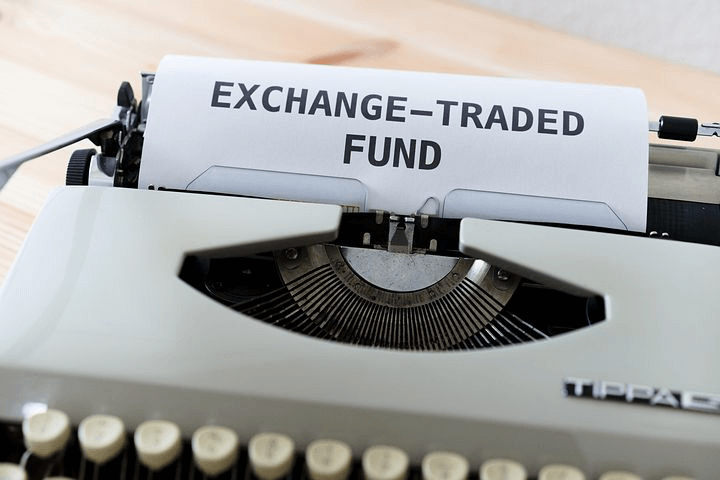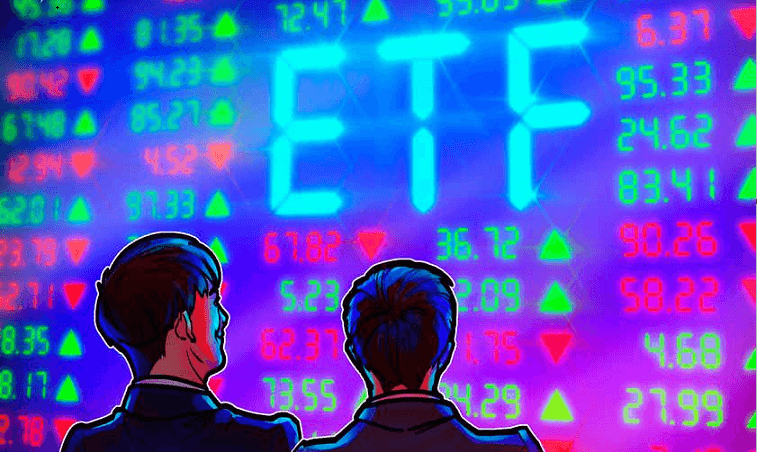Four Things You Need to Know about the Coming of Bitcoin ETF
Bitcoin ETF Ticker Symbol
The first US Bitcoin ETF was launched on Tuesday (US time), ending the cryptocurrency community’s approximately six years of anticipation. ProShares' ETF will begin trading on the New York Stock Exchange (NYSE) Arca under the ticker symbol $BITO. However, the ETF will focus on Bitcoin futures instead of holding spot Bitcoin, which is slightly different. It will be online but it does not mean that it will be available to everyone. Let's take a look at some of the main issues surrounding the large number of Bitcoin ETFs.

What are the Differences between Futures ETF VS Spot ETF?
With Gary Gensler managing the US Securities and Exchange Commission (SEC), the agency seems to have decided to approve the launch of Bitcoin futures ETFs—instead of ETFs based on spot trading. There are some key differences between the two.
For spot ETFs, the value of the ETF will closely depends on the spot price of the underlying asset. In the case of a Bitcoin ETF, it is the price of Bitcoin. In contrast, the performance of futures funds may underperform or outperform spot prices—which means premiums or discounts. (In the short term, prices may vary, but in the long term, they will usually be similar.)
For futures ETFs, the ETF will involve rolling the expiring contract to a higher cost. A spot ETF will not have this cost, but it must pay the custodian to manage Bitcoin-this is relatively unique to Bitcoin.
Both types of ETFs may help increase demand for Bitcoin. For spot ETFs, Bitcoin will be purchased as the underlying asset. For futures ETFs, traders usually hedge by buying physical bitcoins.
Why SEC Prefer Bitcoin Futures ETF?
As a futures ETF, this means it will be an actively managed fund. The company issuing the fund will trade Bitcoin futures, and the success of the fund will depend on their trading strategy.

Currently, the proposed Bitcoin futures ETF only includes long positions. This means that the company behind the ETF can only hold long Bitcoin positions, but not any short positions. There are other companies that have tried to launch a reverse Bitcoin futures ETF (for short positions), but they have not yet been approved.
In the view of the US Securities and Exchange Commission (SEC), an important difference seems to be that Bitcoin spot transactions are conducted in places that are not regulated by the federal level, but futures transactions are conducted on the Chicago Mercantile Exchange, which is regulated by the Commodity Futures Trading Commission.
Will the Spot Bitcoin ETF be Approved?
It depends on SEC and whether the success of the upcoming Bitcoin futures ETF. So far, SEC has not indicated any positive signs that it will approve a Bitcoin spot ETF.
Sui Chung, CEO of CF Benchmarks, who provides market data for CME Bitcoin futures and Proshares' upcoming Bitcoin ETF, said that the introduction of Bitcoin futures ETFs may not harm spot ETF applications.
But on the other hand, he admitted, "If these futures ETFs are going well and are of considerable scale, and can meet investor demand for Bitcoin through the ETF channel, then SEC may argue that the demand has been met.We don’t need to authorize a spot ETF."
What is the Demand for Bitcoin Futures ETFs?
People have a lot of expectations for Bitcoin ETFs. As an ETF, it can be used by many American citizens, especially in a tax-efficient way. One of the most common ways to invest in the United States is to use a 401K, in which ETFs can be included in this investment tool.
But it is not entirely that simple. Although the Bitcoin ETF is about to be launched now, Chung said that it depends on whether large investment companies such as Charles Schwab and TD Ameritrade will provide Bitcoin ETF trading services to their customers.
"They are likely to support it, but what I want to say is that this is not absolute. They may not provide ETFs to all customers, and may only allow certain customers to access these products."
In addition, Chung also pointed out that there is a lot of demand for Bitcoin through the ETF wrapper, and he expects that these demands will be met when the Bitcoin ETF goes online in the next few days. "After that, continued interest and inflows for Bitcoin ETFs are difficult to predict," he said.
Follow us at: https://www.coincarp.com/learns/
Comments
Post a Comment